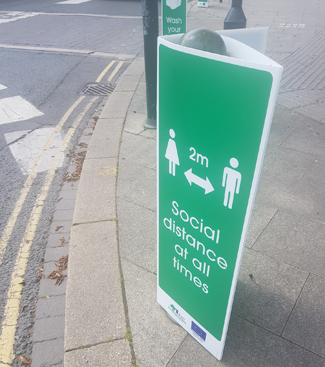Scammers are pretending to be COVID marshals and medical professionals seeking to gain access to people’s homes, reports the Chartered Trading Standards Institute (CTSI). Earlier during the pandemic in the summer, fake healthcare professionals offered bogus COVID-19 tests to gain access to homes, says CTSI.
It points out that the marshals, officially called COVID-19 secure marshals, do not have the power to enforce social distancing, issue fines, or the right to enter homes.
Katherine Hart, CTSI’s Lead Officer for Doorstep Crime, said: “Since March we have seen so many different instances of fraudsters using the pandemic as an opportunity to defraud the public. These scams are shifting in their theme as the rules and regulations change with individuals now pretending to be COVID-19 secure marshals.
“COVID-19 secure marshals will never come to your door unannounced and do not have the right of entry, or the right to issue fines. This type of scam appears in many forms, and I have also received information about individuals pretending to offer flu vaccinations on the door – a concerning development as we enter flu season.
“I am particularly concerned that elderly and vulnerable individuals may be at risk to this scam. I ask the public and public authorities to spread the correct safeguarding information so that we can stop these unscrupulous individuals from ruining the lives of those already struggling during this challenging time.”
Among other scams, bogus texts invite recipients to perform jury service or delay it at cost. Such texts host a link to a scam website clad in UK Government branding which asks the target to confirm that they can perform the service, or to postpone jury service for six months at a fee of £34.99.
What to do
The public and businesses are encouraged to join Friends Against Scams and Businesses Against Scams, respectively. These aim to protect and prevent people and businesses from becoming victims.
If you think you’ve been scammed, report it to Action Fraud, or if in Scotland dial 101 and report it to Police Scotland. Advice and guidance on how to protect yourself, or your business, from fraud and cybercrime, is available at www.gov.uk/coronavirus-fraud-and-cyber-crime.
To report text or email scams, contact the National Cyber Security Centre (NCSC) by emailing [email protected].










